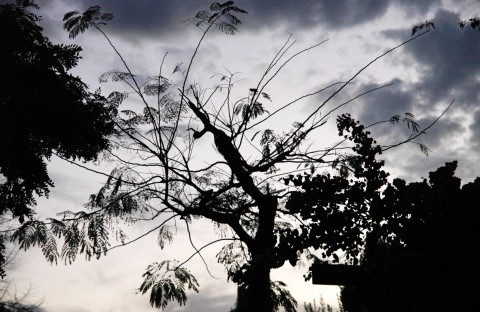Redeeming darkness
As I write this, the end of daylight saving time is right around the corner. A week from now the sun will come up at 7 a.m. and set before 6 p.m., so that the day is more dark than light. Darkness is complete where I live, way out in the country at the end of a dirt road. When city people come to visit, they get jumpy after dark. Christian people do too, leading me to wonder where we got the idea that darkness exists chiefly to be vanquished.
Biblically speaking, darkness is the pits. In the first testament, light stands for life and darkness for death. Sheol is dark as hell. When God is angry with people, they are plunged into darkness. Locusts darken the land. People grope in the dark without light, for the day of the Lord is darkness and not light.
In the second testament, light stands for knowledge and darkness for ignorance. When the true light comes into the world, the world does not know him. He has come so that everyone who believes in him should not remain in the darkness, but they love darkness more than light. On the day he dies, darkness descends on the land from noon until three. First John sums it up: "God is light and in him there is no darkness at all."






